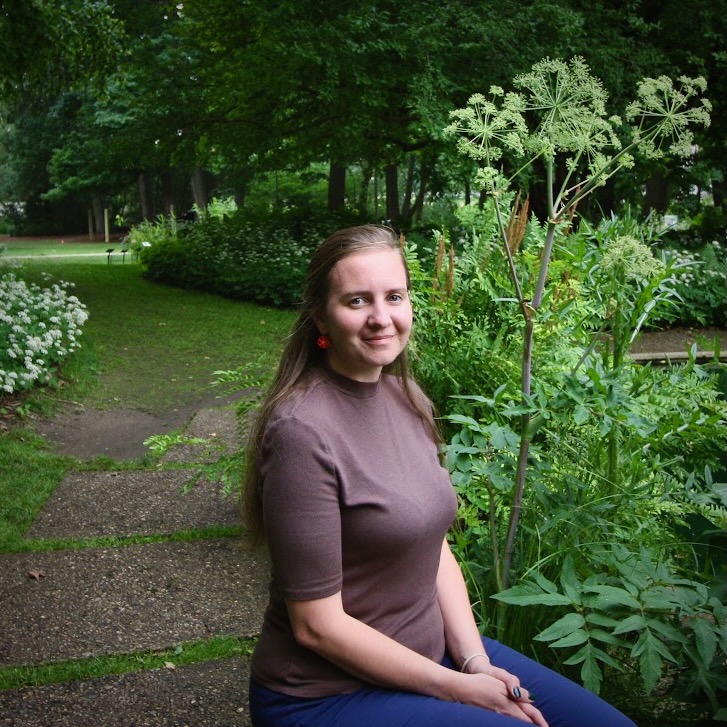Katie Fry is the collections manager at the Beal Botanical Garden, the oldest continually operated university botanical garden in the U.S. Fry, who joined Beal more than 10 years ago as a student botanical technician, recently helped reshape the garden’s collections policy. Her work helps ensure that Beal is a place that illuminates the interconnectedness of people, plants, and place through learning, research and stewardship for generations to come.
Beal Botanical Garden is a place of learning. We are a living laboratory with untethered curiosity for the natural world. Our dedication to research and education makes us a trusted source for understanding plant sciences. While we remain an educational resource, the garden’s role continues to grow and evolve as we push the boundaries of what could be.
From my beginnings years ago as a student, I have grown with this garden. I gained skills and knowledge not only about the many species in our collections but the many stories that show our connection to plants. Working and learning alongside amazing students and volunteers influences my work today. In my current role as Collections Manager, I use these shared experiences to better our garden. Collections are curated to reflect our relationships with plants, where people may contribute their own stories. Along with my colleagues at Beal Botanical Garden, we work together to support people and plants while advancing sustainability.
We are inspired by the world around us. The campus hums from a lively community within a beautiful landscape. It energizes our garden, while embracing the calmness that comes with nature. It is our relationship with nature that shapes our collections and draws us closer to our environment. Our plants play a vital role in understanding, nourishing, and transforming our world. How people and wildlife connect with the garden makes us a dynamic ecosystem.
The legacy of our garden reminds us of who we are. Once called the ‘Wild Garden,’ we are reminded of nature’s place on our campus. We re-wild Beal by returning our landscape to a past form. We bring Michigan plants that are local to our region to provide balance to our ecosystem. Nature is a part of our campus, linked to the larger whole by the Red Cedar River. By changing our landscape, we are welcoming nature and inviting us to connect to the garden in a new way.
Re-wilding Beal brings us closer to our local flora, growing our understanding of the natural world that exists around us. Increasing Michigan plant communities encourages a healthy environment. The garden becomes a vital corridor for nature, nourishing our land, the Red Cedar River, wildlife, and ourselves. The changes we make to the garden are centered around a thriving ecosystem, transforming the role of the garden and illuminating interconnectedness.
As a steward of the garden, I am grateful for the many hands committed to conservation and education. We support thoughtful change to better our environment. Beal is alive, and we continue to grow and change alongside. What endures is our love for the garden and MSU.
You can bring a little of our garden home by re-wilding your own landscape. Incorporating Michigan plants provides habitat and food for wildlife. Michigan plants are an essential part of the existing ecosystem. By re-wilding, we reestablish and expand a thriving environment.
And if you want to make an impact here on campus, you can join us here at Beal in our re-wilding efforts, help us make change, and visit the garden to watch us grow.
